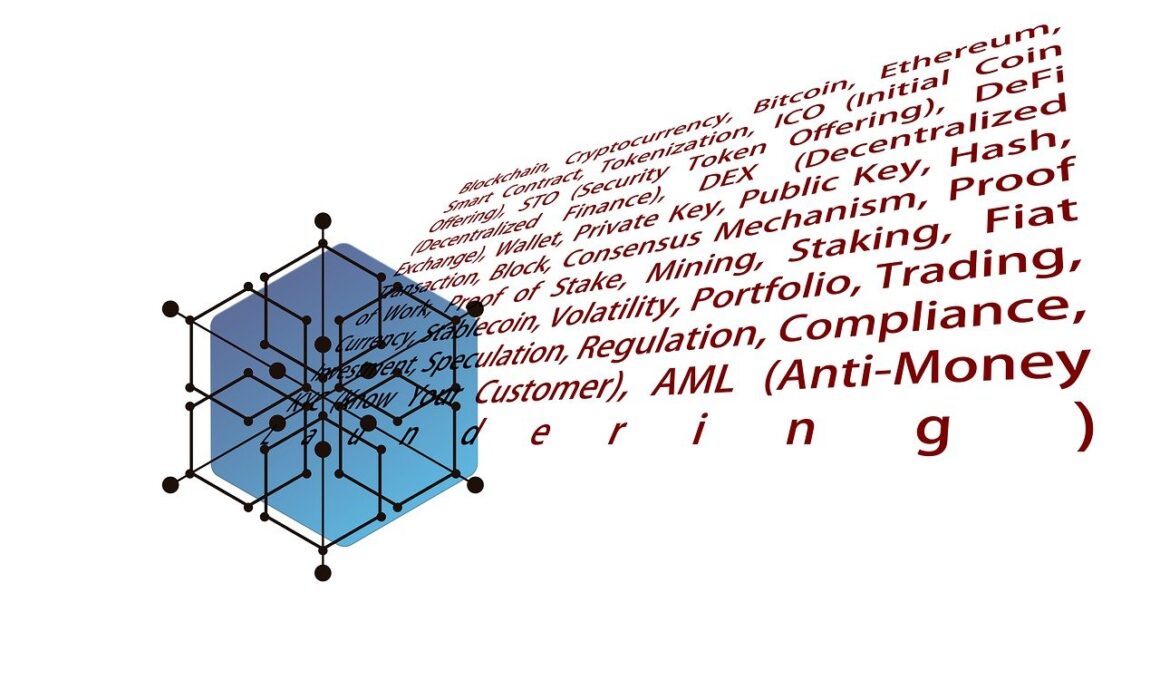Compliance Auditing for Small and Medium Enterprises (SMEs)
Compliance auditing is a crucial aspect for small and medium enterprises (SMEs) seeking to ensure adherence to legal and regulatory requirements. SMEs face unique challenges due to limited resources and expertise. A well-structured compliance audit helps identify gaps in policies and procedures and manage risks effectively. Establishing a compliance framework involves understanding industry regulations, internal policies, and best practices. Organizations should conduct regular compliance audits to assess ongoing adherence and ensure financial stability. By doing so, SMEs can safeguard their reputation and build trust among stakeholders. Engaging with qualified external auditors can provide valuable insights, ensuring independent verification of compliance practices. This engagement often leads to improved processes and a culture of accountability within the organization. It is crucial for management to communicate the importance of compliance and promote a consciousness towards ethical standards. Moreover, compliance audits also help SMEs in identifying opportunities for operational efficiency. This proactive approach not only supports survival but can also lead to growth in competitive markets. Ultimately, compliance auditing is an investment in sustainable business practices for SMEs striving for success.
The Importance of Compliance Audits
Conducting compliance audits offers SMEs a variety of fundamental advantages essential for operating within legal frameworks. Understanding the importance of these audits allows SMEs to establish a reputation for integrity and reliability. In an ever-evolving regulatory landscape, keeping abreast of changes is necessary. Regular auditing helps SMEs navigate these complexities effectively. Furthermore, these audits can illuminate hidden discrepancies. By identifying irregularities early, SMEs can rectify issues before they escalate into significant problems. Compliance audits also play a vital role in risk management. By evaluating internal controls, enterprises can mitigate compliance risks related to financial practices, environmental concerns, or occupational health and safety. This proactive stance might prevent future legal repercussions. Additionally, many clients and investors prefer to engage with companies demonstrating strong compliance measures. Thus, compliance audits can serve as a competitive differentiator, attracting business opportunities. Furthermore, such thorough evaluations can lead to operational improvements since identifying weaknesses often results in enhanced efficiency. Hence, fostering a culture of compliance within SMEs can enhance morale and productivity while significantly reducing potential liabilities. This culture promotes teamwork towards shared objectives and compliance goals.
Preparation for compliance auditing necessitates a systematic approach, starting with documentation review and regulatory compliance checks. SMEs must develop a checklist identifying the relevant regulations and the organization’s internal policies. This document acts as a roadmap for auditors to ensure no crucial element is overlooked. During preparation, all compliance documentation must be organized neatly. Compliance officers or designated team members should review policies, contracts, employee handbooks, and financial records before the audit. They should also ensure that any training or compliance-related activities are up-to-date, reflecting the current operational protocols. Interviews with key personnel provide valuable context, ensuring auditors understand the company culture surrounding compliance. Furthermore, conducting a self-assessment can preemptively flag any problematic areas. Understanding weaknesses allows SMEs to address concerns proactively rather than reactively during the official audit. Consequently, maintaining organized records simplifies the evidence-gathering process for auditors. While complying with stringent requirements may seem overwhelming, thorough preparation complements a company’s aims and objectives. Thus, SMEs can focus on their core business activities while reinforcing compliance effectively.
Common Challenges in Compliance Audits
Small and medium enterprises often encounter various challenges during compliance audits that can impede the process. One significant obstacle is the biased perception that compliance audits are merely a burden or additional overhead. This misunderstanding can foster resistance among staff, limiting cooperation during audits. Furthermore, the lack of dedicated personnel with expertise can lead to insufficient knowledge about compliance requirements. Many SMEs inadvertently overlook vital regulatory aspects simply due to ignorance. Additionally, limited resources can restrict the frequency and thoroughness of audits, resulting in gaps in compliance management. SMEs may also struggle with changing regulations, given the fast-paced nature of legal requirements. Keeping up-to-date becomes a constant challenge that impacts overall compliance effectiveness. Overwhelmed staff can also feel unmotivated to ensure compliance if they perceive it as burdensome. Cultural attitudes within the organization influence compliance attitudes, causing discrepancies in engagement levels. Therefore, SMEs must work diligently to foster a positive culture towards compliance within the organization. Creation of training programs and open lines of communication can help overcome these challenges and promote cooperation during audits.
After completing a compliance audit, SMEs should follow specific steps to ensure the implementation of findings. Addressing the initial findings requires real commitment to effect change. The first step involves discussing the audit results with the leadership team and determining responsible parties for remediation. It’s crucial to develop a transparent action plan outlining the tasks to be performed, timeline, and accountability mechanisms. Creating follow-up meetings ensures that all parties remain focused on their responsibilities and deadlines. Additionally, it’s vital to communicate audit findings to all levels of the organization. Staff should feel engaged in the improvement process, fostering a sense of ownership. By emphasizing the risks of non-compliance, businesses can motivate staff to comply proactively. Furthermore, continuous training opportunities can be introduced to enhance staff knowledge regarding compliance. The cyclical nature of compliance auditing encourages ongoing evaluation and improvement within the organization. By viewing audits as not just corrective actions but as developmental opportunities, SMEs can integrate best practices smoothly. Subsequently, compliance auditing transforms from a burden into a valuable resource to strengthen organizational integrity.
Utilizing Technology for Compliance
In today’s digital era, leveraging technology is paramount for SME compliance practices. Automation tools streamline compliance tasks, ensuring efficiency and accuracy in monitoring obligations. Various software solutions help businesses maintain an up-to-date regulatory database, facilitating quick reference for industry standards. By utilizing technology, SMEs can ensure thorough recordkeeping. Digital documentation minimizes the risks of losing vital information, which can occur with paper records. Furthermore, compliance management systems (CMS) offer comprehensive tracking of compliance-related tasks and dependencies. These systems promote integrated workflows, enabling SMEs to automate notification processes for renewals or compliance deadlines. Additionally, utilizing artificial intelligence and machine learning technologies aids in risk management by predicting compliance issues based on data patterns. Organizations also gain access to analytics capabilities, helping them evaluate the effectiveness of their compliance strategies over time. Technologies empower SMEs to allocate resources efficiently, allowing for better decision-making regarding compliance investments. Furthermore, advanced security systems are created to safeguard sensitive data against unauthorized access, ensuring a robust compliance environment. Hence, leveraging technology dovetails perfectly with modern compliance strategies, preparing SMEs for future challenges.
Finally, sustainability and corporate social responsibility (CSR) are essential components that intersect with compliance auditing. SMEs are increasingly expected to demonstrate commitments not only to regulatory adherence but also to ethical practices. Establishing sustainable practices can enhance brand loyalty and increase customer trust, directly impacting profitability. Compliance audits relating to CSR initiatives assess whether SMEs align with community expectations and environmental responsibilities. As a result, companies can identify areas for improvement and better understand their impact on the environment. Furthermore, demonstrating compliance with CSR enhances an SME’s image in the marketplace, potentially attracting new clients seeking socially responsible partners. Integrating social governance with compliance strategies creates a harmonious environment within the organization while reducing risks associated with public relations crises. Engaging stakeholders within the community fosters positive relationships, allowing for collaborative enhancing efforts. Ultimately, CSR and compliance auditing must work synergistically within SMEs. Successful integration can help businesses adapt to evolving consumer expectations while ensuring compliance obligations are met. Thus, embracing sustainability early on not only meets current obligations but builds a progressive pathway towards future resilience.



